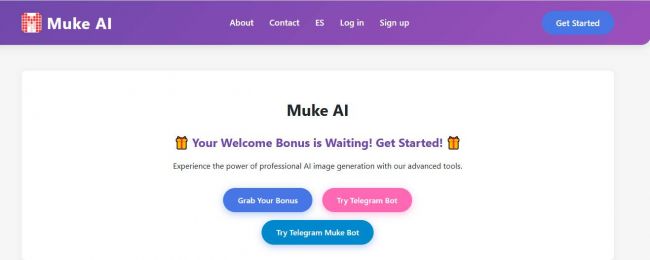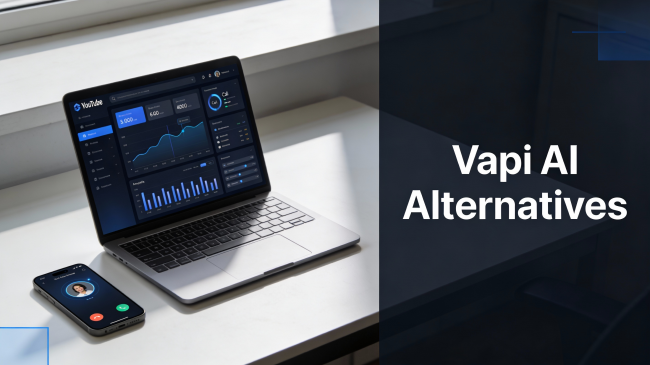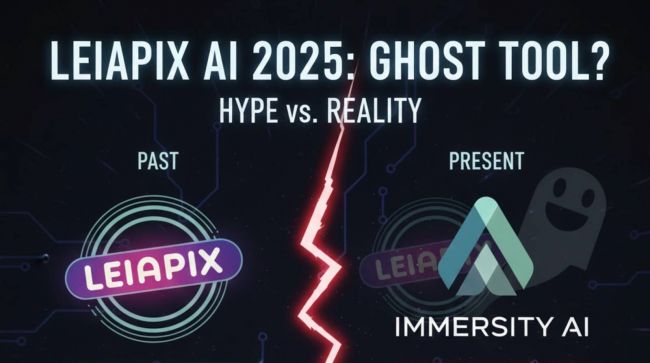On This Page
- Ever Wished Your Browser Could Think?
- Meet Comet AI: A Browser That Wants To Be Your Personal Assistant
- Agentic Search: When Your Browser Doesn’t Just Answer, It Acts
- Email, Calendar & Life Admin: Letting Comet AI Deal With the Boring Stuff
- Letting AI Handle the Tab Chaos: Workspaces Instead of Clutter
- A Day in My Life with Comet AI
- Is My Data Safe with Comet AI? The Good, the Bad, and the Warnings
- Stories from Users: The Hype, the Friction, and the “Not Yet”
- Who Comet AI Makes Sense For
- Bigger Picture: Productivity Claims, GDP Talk, and the AI Browser Race
- My Honest Take: Is Comet AI Worth Using Today?
Ever Wished Your Browser Could Think?
Most days, my browsing looks like chaos: 20+ tabs, three half-written emails, a couple of docs, and some random “I’ll read later” articles that I never touch again.
Comet AI, built by Perplexity, tries to kill that chaos by baking an AI assistant directly into the browser itself, instead of leaving it as “just another tab.” It’s pitched as a “browser that works for you”, something that not only shows pages, but also **summarizes them, acts on them, and organizes your life around them.

And once you see that pitch, the obvious follow-up is:
What does this thing actually do differently from Chrome or Edge in daily use?
Meet Comet AI: A Browser That Wants To Be Your Personal Assistant
Comet AI isn’t just a skin over Chromium; it’s what people keep calling an “AI-native browser.” Under the hood it’s still Chromium-based, but the big difference is that it comes with an AI agent that can see your current tab, understand what’s on the page, and perform actions across sites, shopping, research, form-filling, and more. From Perplexity’s own positioning and the Comet AI homepage, here’s what it claims it can do inside the browser:
- “AI that understands” – ask it how multiple news sites are covering a story differently.
- “AI that organizes” – have it group your tabs by category and close distractions.
- “AI that builds” – tell it to spin up a basic website using a website generator.
- “AI that emails” – draft replies that share your availability or context.
- “AI that creates” – build study plans or structured content from long docs.
- “AI that shops” – compare products, read reviews, and help with purchase decisions.
Instead of thinking “let me open a search engine,” I’ve started thinking:
“Let me just ask Comet AI to deal with this tab so I can move on.”
And that mindset shift shows up most clearly in one area: search and tasks.
Agentic Search: When Your Browser Doesn’t Just Answer, It Acts
Comet AI leans heavily on something Perplexity and others call “agentic search.” Instead of just giving you 10 blue links, the browser tries to understand your goal and then executes multi-step workflows to get you there.
In my day-to-day use, that looks like:
- Dropping a long article into Comet AI and asking: “Summarize this in 5 bullet points, then draft a reply email referencing the key point.”
- Sharing a product link and saying: “Compare this with three similar ones and show pros/cons.”
- Asking, inside a tab: “What are the main risks mentioned on this page?” and getting a quick, page-aware answer in the sidebar.
The “Ways to Use Comet AI” guide explains that you can use Assistant or Summarize directly on whatever page you’re on, and even @tab specific open tabs so the AI only looks at what’s relevant to your current task.
Once you get used to that, normal search starts to feel like typing into a static box from 2005.
And this “I’ll handle it” behavior doesn’t stop at browsing, it stretches into email too.
Email, Calendar & Life Admin: Letting Comet AI Deal With the Boring Stuff
One of the more interesting claims on the Comet AI getting started page is that you can connect Gmail and Calendar so Comet AI can:
- Brief you on your day
- Find information hidden inside your inbox
- Draft and schedule emails on your behalf
In practice, that means I can do things like:
- “Summarize everything I missed from this client over the last two weeks and propose a polite follow-up.”
- “Find all emails related to ‘Q4 budget’ and give me a one-paragraph status.”
- “Schedule a call with X next week and propose three time slots.”
It’s not perfect, and I definitely double-check any email before sending, but it does save time on “find, skim, re-contextualize, respond” loops.
And honestly, where Comet AI feels the most different from a traditional browser is how it manages tabs and context.
Letting AI Handle the Tab Chaos: Workspaces Instead of Clutter
Comet AI’s marketing and reviews both focus on reducing tab overload. The core idea is that instead of running 25 random tabs, you build workspaces, logical clusters around projects like “client work,” “trip planning,” or “shopping.”
Here’s what that has meant for me in real usage:
- When I’m working on a report, Comet AI keeps research pages, docs, and drafts grouped and remembers what I was doing.
- When I shift to “life admin,” it brings up bills, forms, travel plans, and keeps that separate.
- It can auto-open certain sets of sites for “morning routine” or “news + market check.”
The Android listing on Google Play even describes Comet AI as learning your habits to “keep you organized” and help you never lose track of tabs or inspiration.
Is that 100% true all the time? No. I still manage to create chaos occasionally. But the idea of the browser acting like a project hub instead of a flat tab strip is a genuine step forward.
And you feel that most during a normal working day.
A Day in My Life with Comet AI
Here’s what a typical “Comet AI-heavy” day has looked like for me:
Morning:
- I open Comet AI and let it pull together news, email, and calendar in one workspace.
- I ask it to summarize 4–5 news articles and highlight anything relevant to AI or my current projects.
- It drafts quick responses to a couple of emails I’d usually procrastinate on.
Mid-day work block:
- I’m researching a topic, so I open a bunch of tabs. Instead of manually taking notes, I ask Comet AI to turn them into a structured outline.
- When one article seems suspicious, I ask Comet AI to cross-check the claims across other sources, similar to what reviewers describe in AI-browser comparisons.
Shopping / personal stuff:
- I look for a new headset; Comet AI compares options and summarizes review sentiment.
- I don’t have to copy/paste between sites, most of that work is handled inside the context-aware sidebar.
The net effect is that routine browsing feels less like juggling 50 things and more like delegating small tasks to a half-competent assistant.
Of course, the moment a tool starts reading your email and “clicking for you,” one question becomes non-negotiable:
“Is my data actually safe?”
Is My Data Safe with Comet AI? The Good, the Bad, and the Warnings
Perplexity’s messaging around Comet AI puts a big emphasis on privacy. They claim that Comet AI:
- Keeps your data local to your browser environment
- Uses encryption
- Let's you control privacy and ad settings through its built-in options
- Allows you to see how your data is handled via the privacy page linked from the Comet AI docs
The Google Play listing also clarifies that some data (like app performance and device IDs) may be shared, and things like location and personal info may be collected, but that data is encrypted in transit and can be deleted upon request.
However, that’s not the full story.
In August 2025, a report highlighted that Comet AI had a vulnerability around “prompt injection,” where a malicious website could trick the AI assistant into leaking sensitive data like email contents or even one-time passwords, if not properly sandboxed. This was brought into the spotlight by rival browser Brave and covered by outlets like NDTV.
On top of that, Amazon has filed a lawsuit claiming that Comet AI’s automated shopping features amount to unauthorized access to customer accounts and disrupt Amazon’s own systems. Perplexity has pushed back, calling it “corporate bullying” and arguing that users should be free to use AI assistants of their choice.
So from a practical standpoint, here’s how I’m treating Comet AI right now:
- I’m comfortable using it for research, reading, summarizing, basic email drafting, and low-risk automation.
- I’m more cautious when it comes to banking, highly sensitive logins, or OTP-based flows.
- I keep an eye on permissions and what I’ve actually allowed it to control.
It’s a promising idea with real risks that are still being worked through.
And users are absolutely picking up on that tension.
Stories from Users: The Hype, the Friction, and the “Not Yet”
Early adopters, especially on Reddit’s r/perplexity_a and in long-form reviews, tend to fall into a few buckets:
What people seem to love
- The feeling of having a “co-pilot” inside every tab
- The ability to reduce context-switching between apps
- Research workflows where Comet AI brings together sources, summarizes, and drafts output
- Fewer mindless steps for shopping, booking, or repetitive forms
Some reviewers even call AI browsers like Comet AI “the future of how we use the web” or say they can’t fully go back to old-school browsing after trying it.
What people are unsure of or annoyed about
- Occasional jank, bugs, or performance hits, especially on heavier pages
- The learning curve of trusting an agent to click and type on your behalf
- Worries about data leakage or unexpected behavior when AI is fully “agentic”
- Limited features compared to ecosystems like Chrome with years of extensions
Even among optimistic reviewers, there’s a common thread:
“This is clearly where browsers are heading, but we’re still early.”
So with that context, the real question becomes:
Who does Comet AI make sense for right now, and who should wait?
Who Comet AI Makes Sense For
Based on my own usage plus all the reporting, Comet AI currently feels best suited for:
- Heavy knowledge workers – writers, analysts, researchers, consultants
- Founders & operators who juggle lots of information and recurring workflows
- People who already love Perplexity’s Q&A style and want it everywhere in their browsing
- Power users tired of standard browsers and curious about AI-native workflows
On the other hand, I’d be more cautious if:
- You mostly browse casually and don’t need automation
- You’re extremely risk-sensitive about data and logins
- You’re deeply invested in an existing Chrome or Firefox plugin ecosystem and don’t want to shift yet
And this becomes even more interesting when you zoom out and look at the bigger economic story behind Comet AI.
Bigger Picture: Productivity Claims, GDP Talk, and the AI Browser Race
Perplexity’s CEO, Aravind Srinivas, has publicly argued that Comet AI could cut the need for extra hires by acting as a kind of digital teammate. He’s suggested that productivity gains from tools like this could be worth around $10,000 per worker per year, and even hinted at multi-trillion-dollar impacts on global GDP if agentic AI browsers become mainstream.
That’s obviously ambitious, and it’s framed as a claim, not a guarantee, but it sets the tone for how Perplexity sees Comet AI: not as “just another browser,” but as infrastructure for how digital work gets done.
At the same time, AI-focused coverage from outlets like AI Magazine and IBM’s analysis of agentic browsers points out:
- SEO and web monetization models will likely have to adapt to “zero-click” behavior where users get answers without visiting as many sites.
- The browser market is still dominated by Chrome, Safari, and Edge, breaking user habits won’t be trivial.
- Comet AI is part of a broader wave, alongside tools like Atlas, Gemini, Arc, Dia, and others, all trying to define what an AI-native browser looks like.
So where does that leave me personally?
My Honest Take: Is Comet AI Worth Using Today?
If I had to sum up my experience in one line, it would be:
Comet AI already feels useful enough to keep installed, but not yet stable or trusted enough to fully replace my primary browser.
What I really like:
- It genuinely cuts down repetitive “search → skim → copy → act” cycles.
- It’s excellent for research-heavy work and everyday information grinding.
- The email + calendar + browsing integration can feel like magic when it works.
- The fact that it’s now free for everyone, with an optional Comet AI Plus subscription on top, makes it easy to try without risk.
What still keeps me cautious:
- The history of prompt-injection vulnerabilities and the ongoing data-safety debates.
- The agentic behavior sometimes feels “too powerful” unless you’re very specific about boundaries.
- Every new AI browser has to earn trust, and that just takes time.
So my current stance is:
- Yes, it’s worth trying if you’re curious about the future of browsing or handle a lot of research and email.
- No, I wouldn’t move everything to it yet, especially for highly sensitive tasks.
Post Comment
Be the first to post comment!





